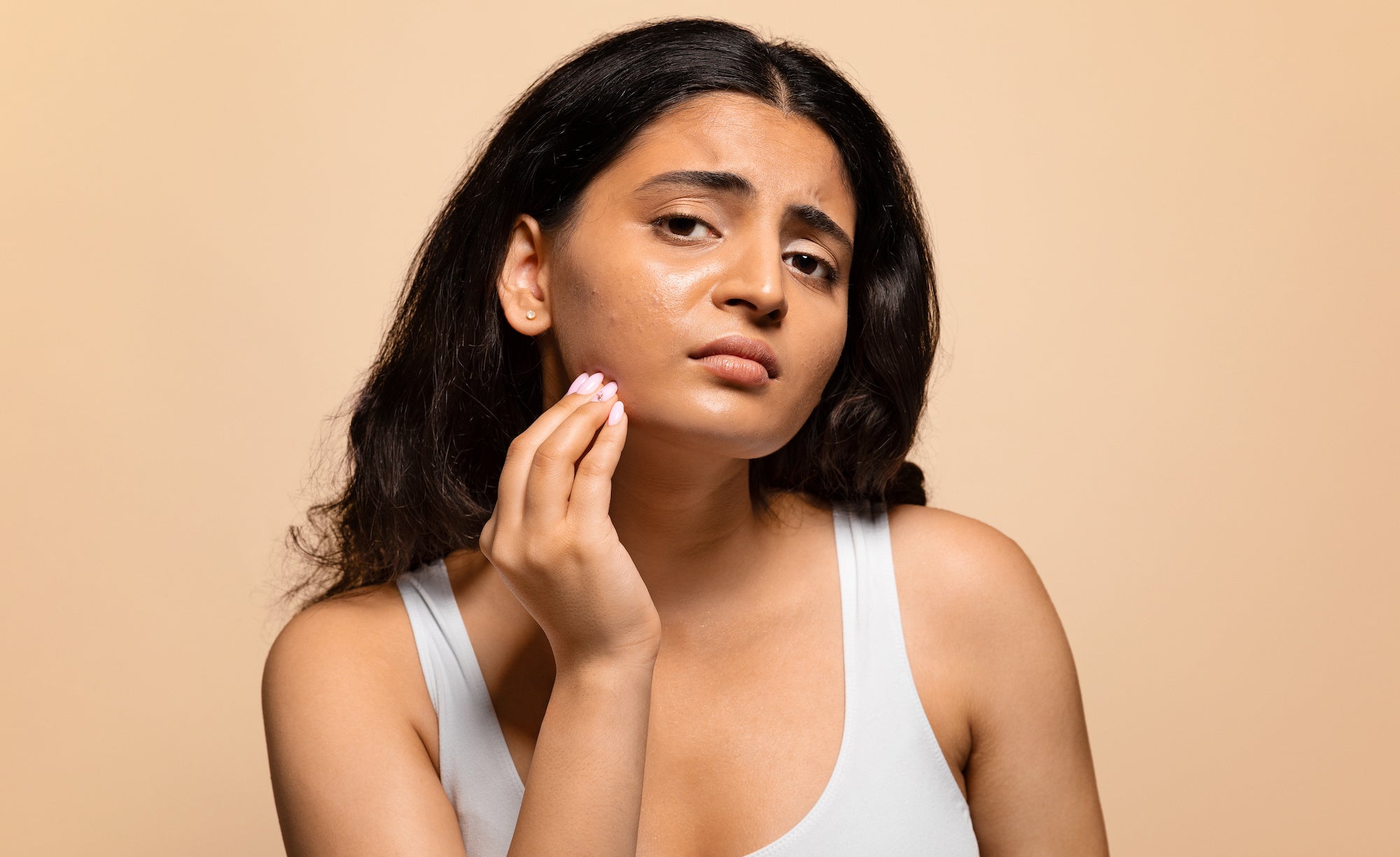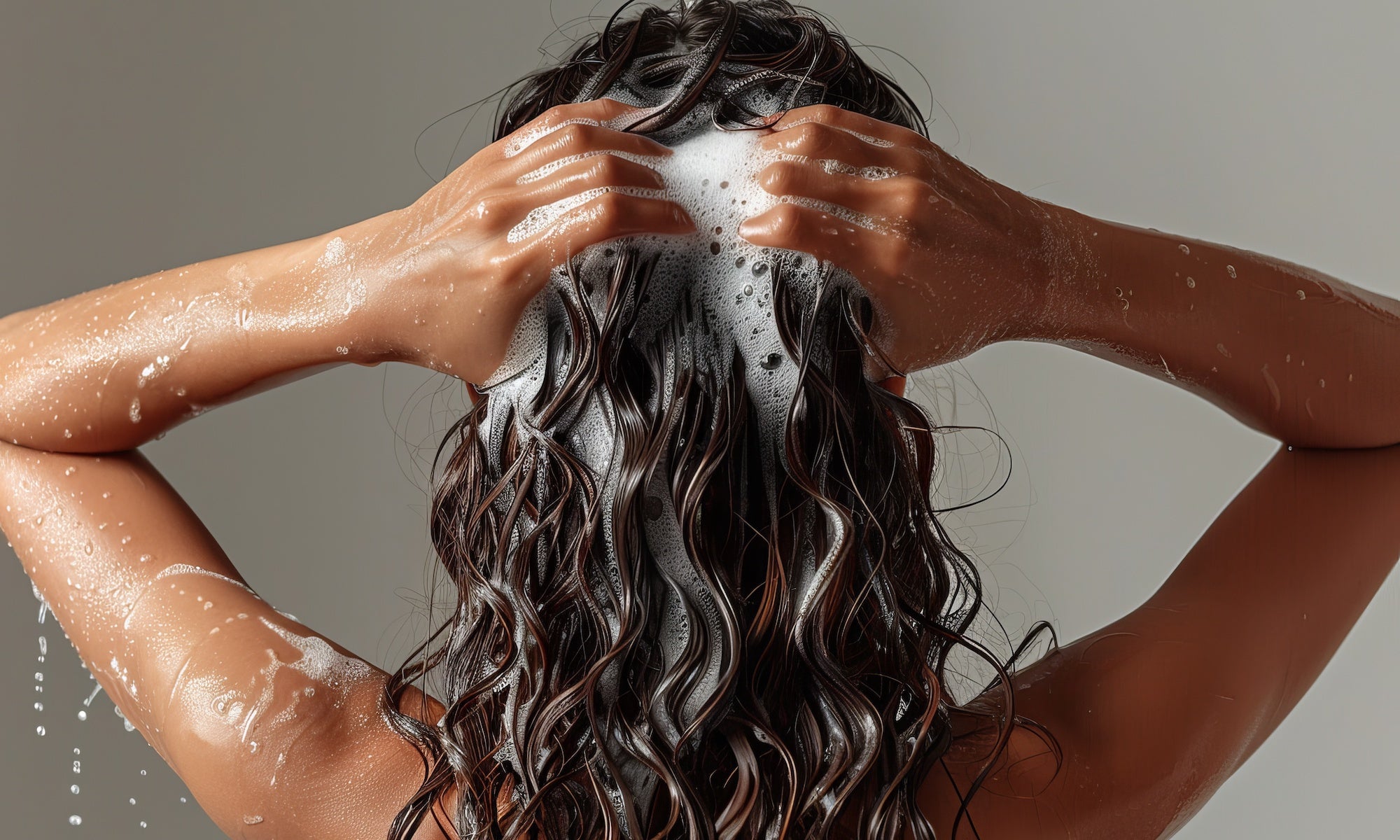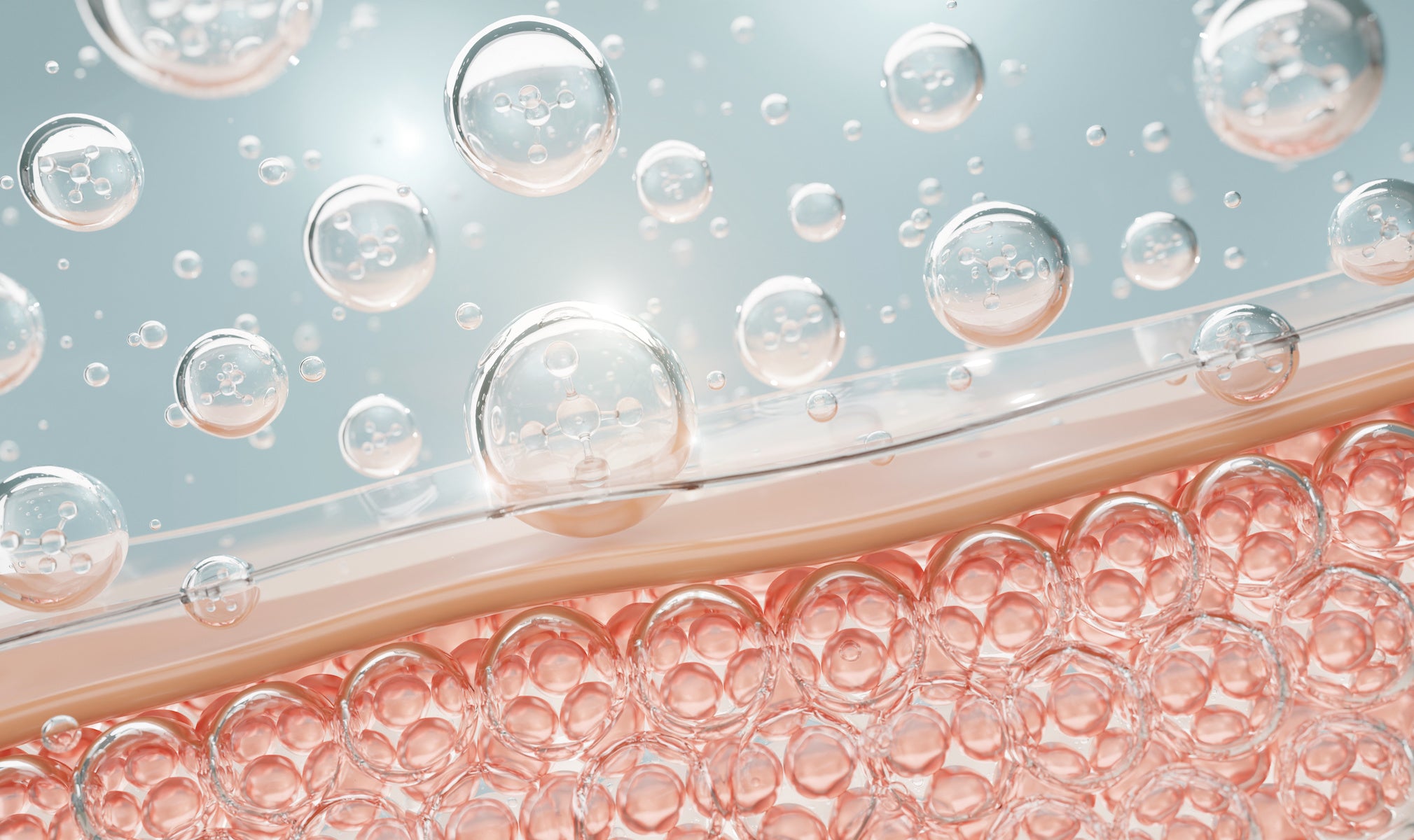
How Stress and Anxiety Can Trigger Acne and Rosacea
It's no secret that our mental health can have a significant impact on our overall well-being, but did you know that stress and anxiety can take a toll on your skin as well? For those dealing with acne or rosacea, flare-ups during times of stress are all too common.
In this blog, we’ll explore the science behind why stress and anxiety can trigger acne and rosacea, and how you can manage these conditions more effectively by addressing the root cause—stress.
The Science Behind Stress and Skin Health
Our skin is closely connected to our nervous system through something called the brain-skin axis. In fact Dermatology Times reports that "approximately 30% of patients with skin disorders suffer from a comorbid psychological condition such as depression or anxiety." When we experience stress or anxiety, the body activates its fight-or-flight response, releasing hormones like cortisol and adrenaline. These stress hormones can wreak havoc on our skin in several ways:
Increased Oil Production: Cortisol stimulates the skin’s sebaceous glands to produce more oil (sebum). While sebum is important for keeping our skin moisturized, excess amounts can lead to clogged pores, ultimately triggering acne breakouts.
Weakened Skin Barrier: Stress can compromise the skin's protective barrier, making it more prone to irritation, dehydration, and infections. When this barrier is weakened, it can exacerbate conditions like rosacea, causing redness and flare-ups.
Inflammatory Response: Chronic stress leads to prolonged inflammation in the body. This low-grade inflammation doesn’t just affect your organs and immune system, but also your skin. For those prone to acne or rosacea, inflammation can trigger flare-ups and make existing symptoms worse.
Delayed Healing: Research shows that stress can slow down the skin’s ability to heal. If you suffer from acne, this means blemishes may take longer to clear up, increasing the risk of scarring and post-inflammatory hyperpigmentation. Similarly, rosacea flare-ups may linger for extended periods.
How Stress Triggers Acne
Acne is primarily caused by clogged pores, bacteria, and inflammation. When stress levels rise, so do cortisol levels, which directly affect these factors. Here’s how:
Increased Sebum Production: Elevated cortisol levels increase oil production, creating the perfect environment for clogged pores and acne-causing bacteria.
Skin Cell Turnover: Stress disrupts normal skin cell turnover, causing dead skin cells to accumulate on the surface. These dead cells can block pores, leading to blackheads, whiteheads, and inflamed acne.
Hormonal Imbalance: Stress impacts hormones like androgens, which are responsible for stimulating the sebaceous glands. This is particularly problematic for those with hormonally driven acne.
How Stress Triggers Rosacea
Rosacea is a chronic inflammatory condition that causes facial redness, visible blood vessels, and sometimes acne-like bumps. While its exact cause is unknown, stress and anxiety are known to be major triggers. Here’s why:
Increased Blood Flow: Stress increases blood flow, particularly to the face, causing redness and flushing that is characteristic of rosacea.
Inflammatory Response: Chronic stress can exacerbate the inflammatory processes that drive rosacea. This can lead to more frequent and severe flare-ups, often marked by intense redness and irritation.
Sensitivity to Triggers: Stress can make your skin more sensitive to external triggers, such as changes in temperature, spicy foods, or skincare products. This heightened sensitivity makes managing rosacea even more challenging during stressful periods.
Managing Stress to Improve Acne and Rosacea
While it’s impossible to eliminate stress entirely, there are ways to manage it more effectively to prevent flare-ups of acne and rosacea. Here are some tips:
Practice Mindfulness and Relaxation Techniques: Incorporating relaxation techniques like meditation, yoga, or deep-breathing exercises into your routine can help lower cortisol levels and reduce stress. Studies have shown that mindfulness practices can improve both mental health and skin conditions.
Exercise Regularly: Exercise is a great stress reliever. It boosts circulation, helping the skin receive more oxygen and nutrients while also reducing inflammation. Just be sure to shower and cleanse your skin afterward to avoid clogged pores from sweat.
Follow a Consistent Skincare Routine: During stressful times, stick to a skincare routine tailored to your skin type and condition. For acne-prone skin, look for products with salicylic acid or mandelic acid to keep pores clear. Oxygenetix Oil Control Foundation and Pore Clarifying Hydro-Matrix moisturizer contain salicylic acid to maintain clear pores while looking and feeling your best!
For rosacea, focus on gentle, hydrating products that soothe inflammation. Moisturizers like Oxygenetix Oxygenating Hydro-Matrix are excellent for providing hydration without clogging pores or irritating the skin.
Boost Your Confidence With Makeup: Wearing makeup can boost confidence and emotional well-being, which positively affects the skin. Cover rosacea redness with Oxygenating Foundation made with aloe first to soothe and calm the skin. For acne, Oil Control Foundation will help maintain clear skin while covering pimples and inflammation.
Get Enough Sleep: Sleep is critical for skin repair and reducing stress. Aim for at least 7-8 hours of quality sleep per night to help your skin recover and reduce the likelihood of stress-related flare-ups.
Seek Professional Help: If stress and anxiety are significantly affecting your skin and overall well-being, it might be time to seek professional help. Cognitive-behavioral therapy (CBT) or talking to a dermatologist and mental health specialist can provide strategies to better manage stress and its impact on your skin.
Stress and anxiety are unavoidable parts of life, but their effects on acne and rosacea don’t have to be. By understanding the connection between your mind and skin, you can take proactive steps to reduce stress, improve your mental health, and ultimately, keep your skin clear and calm.
Remember, it’s not just about treating the symptoms—addressing the underlying cause is key. Keep your skin and your stress in check, and you’ll see the difference on both your face and in your overall well-being.


Laisser un commentaire
Ce site est protégé par hCaptcha, et la Politique de confidentialité et les Conditions de service de hCaptcha s’appliquent.